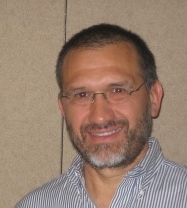wearable sensors
See the following -
'Open' Development of Wearable Health & Fitness Wristbands
There are more and more health or fitness wristbands starting to hit the market every few weeks. According to the latest projections from ABI Research, the total market for wearable wireless devices in sports and healthcare will grow to 170 million units by 2017. While many of these devices currently have limited capabilities, usually measuring just one metric, this is about to change. Read More »
- Login to post comments
Clinton & Topol Preach the Importance of Evolution in Healthcare
For all of their differences, former U.S. President Bill Clinton and cardiologist Eric Topol--the West Endowed Chair of Innovative Medicine at The Scripps Research Institute in La Jolla, Calif.--delivered a similar message in their respective keynote addresses this week at the Healthcare Information and Management Systems Society's annual conference... Read More »
Epson Enters Fitness Monitor Market with Pulsense Band and Watch
Epson announced its Pulsense line of watches and wristbands for fitness, health, and wellness monitoring at this year’s CES conference. Pulsense is a device worn on the wrist that can monitor heart rate, activity levels, calories burnt, and sleep patterns. Read More »
- Login to post comments
FCC Designates Broadband Frequency For Medical Body Area Networks
Federal regulators have written final rules for the allocation of wireless spectrum for wearable sensors, creating a new position to help healthcare providers shield sensor networks from other wireless users. The Federal Communications Commission's rules for the operation of Medical Body Area Networks (MBANs) gives healthcare providers a designated broadband frequency on which to use those sensors...
- Login to post comments
For A Glimpse At What’s Next In Health Wearables, Check Out One Design Firm’s Idea For Epileptics
Health monitoring devices of the future will not just be biometric tracking devices or journaling apps or detection and alerting systems, but all of the above as part of one comprehensive solution.
- Login to post comments
How Wearable Electronics Will Change Clinical Trials
 Advances in sensor technology and microelectronics have opened new opportunities in the health and life sciences industries. Wearable sensors allow for continuous bio-monitoring without any manual intervention, thus reducing provider-patient interaction and costs while contributing improvements in the quality of the data...The broad adoption of biosensors by consumers, combined with advances in Nano and Cloud technologies are expected to radically change the way research is conducted by the Life Science industry, improving patient recruiting and monitoring, while lowering development and therapy cost.
Advances in sensor technology and microelectronics have opened new opportunities in the health and life sciences industries. Wearable sensors allow for continuous bio-monitoring without any manual intervention, thus reducing provider-patient interaction and costs while contributing improvements in the quality of the data...The broad adoption of biosensors by consumers, combined with advances in Nano and Cloud technologies are expected to radically change the way research is conducted by the Life Science industry, improving patient recruiting and monitoring, while lowering development and therapy cost.
- Login to post comments
Intel's 'open source' Galileo computer is now on sale
Intel’s Galileo, an 'open source' computer hardware solution for the do-it-yourself (DIY) crowd, is scheduled to ship at the end of this month. It is about the size of a credit card and uses Intel’s extremely low-power Quark processor. It is priced at around $65 per unit.Intel has decided to tap into the 'maker' community to help figure out how to best use its new line of Quark chips. It will be a great tool for prototyping projects from building robotic devices, wearable systems, health sensors, micro-PCs, automating home appliances and much more. Read More »
- Login to post comments
The Pathway to Patient Data Ownership and Better Health
Digital health data are rapidly expanding to include patient-reported outcomes, patient-generated health data, and social determinants of health. Measurements collected in clinical settings are being supplemented by data collected in daily life, such as data derived from wearable sensors and smartphone apps, and access to other data, such as genomic data, is rapidly increasing. One projection suggests that a billion individuals will have their whole genome sequenced in the next several years. These additional sources of data, whether patient-generated, genomic, or other, are critical for a comprehensive picture of an individual’s health...
- Login to post comments
VetAdvisor Deploys SugarCRM to Create a World-Class Veteran Relationship Management Platform
VetAdvisor, the nation’s expert in veteran-centric holistic care, has rapidly expanded its reach to military veterans through its recent deployment of the SugarCRM customer relationship management (CRM) platform. Leveraging SugarCRM’s advanced open source CRM platform, VetAdvisor is able to provide proactive coaching services across behavioral health, wellness, financial, and all aspects of transition and career development.
- Login to post comments